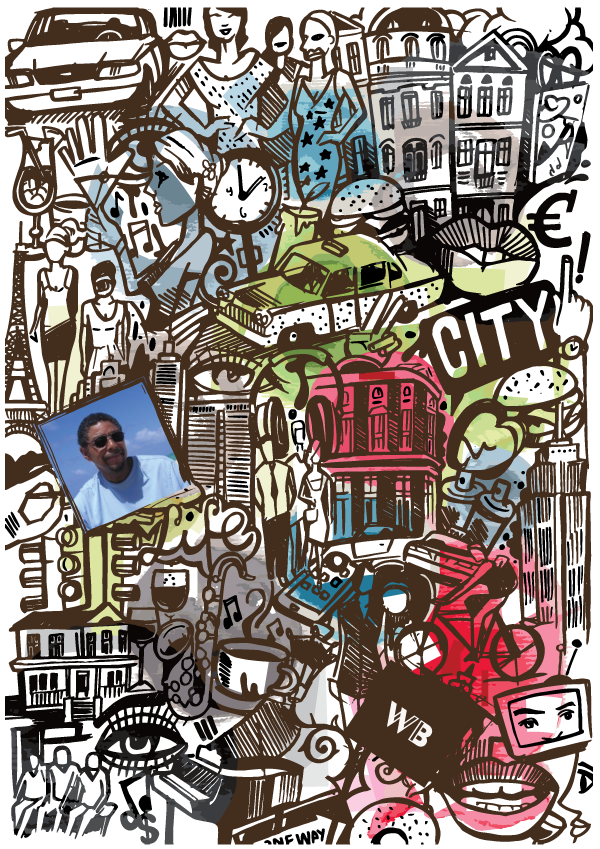So people make things happen. So people watch things happen. Some people say, “What happened!”
A ball rolls down a hill because it has no sides or angles and offers no resistance. People on the other hand have many sides and often have to choose sides. It makes us vulnerable! We can be hurt by words and comments as well as by sticks and stones. To me, this past year has been somewhat controversial for the Berkeley Chamber of Commerce. Some have accused the Chamber of being mean spirited, divisive and even of engaging in questionable political activity. Perhaps they’ve made questionable decisions and bet on dead horses, but I don’t think that any of this has lead to Rachel Rupert’s decision to step down as executive director of the Berkeley Chamber of Commerce. Rachel has never been afraid or ashamed of expressing her opinions and names will never hurt her. As one of her staff recently said, “She can get down and dirty if she has to.” I’ve often heard that what’s good for business is good for Berkeley. And I always counter that what’s good for people (including the poor) is good for business and Berkeley as well. One is not exclusive of the other! Here I want to express what Rachel has done that was good for people in general, and me personally.
When I first started working for BOSS (homeless service provider) I had already successfully run employment and training programs for low income people in Philadelphia Pa, Davenport Iowa, Hayward and Oakland CA. When I started programs in Berkeley I was somewhat surprised at no matter the good I thought I was doing somewhat would object. If I found the solution to world hunger and clean air – someone else would say, that’s a bad idea and it could lead to overpopulation! When I started programs in Berkeley, at the end of 1988, I was trying to help homeless people find jobs and become self-sufficient, but unfortunately the businesses, merchants, homeless people and the community at large were on opposite sides, and rarely in agreement.
Rachel invited me to come to the table (chamber meetings) and present the opinions, needs and issues of poor and homeless people who were trying to become self-sufficient. We often talked, and though on many things we didn’t agree and were often on the opposite sides of the table, I could tell that she was not immune and had personal knowledge of poverty and people in crisis. Regardless of the topic and our many disagreements, we always treated each other with respect. (Look out Rodney King, maybe we can all get along!) She provided a forum where I could represent the issue of the poor to some of the wealthiest and most powerful business owners and landlords in Berkeley as and equal. Eventually she invited me to join the Board of Directors. Some people questioned, and still do, – my decision to join the board. They talked about me like a dog! But like Slick Willie Sutton responded when asked why he robbed banks, “That’s where the money is”, and to me the chamber provided access to where the jobs were.
At one chamber meeting the subject of the Berkeley City Council’s decision to look into who had connection to slavery in America and did business in Berkeley led to several board members commenting that they thought it was amusing and a waste of time. As the great grandson of slaves I was offended. Not only was Rachel not a part of those who thought this topic humorous, she didn’t come to me later (like some folks did when no one was looking) and apologize, which irritated me even more. Actually she told me, “Winston speak your piece, handle your business.”
Rachel and I also talked about starting a program that could serve the needs of, the homeless, businesses and residents as well. She pointed out the streets were dirty in downtown, even though the city was doing it’s best to keep them clean, and the large amount of graffiti and tagging that was prevalent in the community at the time. She encouraged me to approach the merchants and the city to provide a service that would not only keep the streets clean, but would also remove or prevent graffiti and get homeless people employed. To this day over 400 people have benefited from the programs she helped me develop in 1992 – The Clean City Program. Most of the participants are now housed and the program continues to this day. (They wear blue vest)
She was a supporter of the MASC (Multi Agency Support Center), which has provided drop in services to over a 100 low income people a day (many of them chronically homeless) in downtown Berkeley, when it wasn’t politically correct. Rachel has hired BOSS participants, and is a regular Spiral Gardens patron, a nursery in South Berkeley (Sacramento and Oregon Streets) which promotes healthy food and eating, and she regularly donates food and clothing to help, seniors and poor people. In addition, as director of the chamber, she gave me many opportunities (at no or reduced cost) to present BOSS’s programs at business showcases held annually, which led to donations and volunteer support.
I don’t know who the next executive director of the chamber will be, but I hope that like Rachel, they will also invite community based organizations to the table and extend their hand when no one is looking.
Rachel has sides and will never smoothly roll down the hill. But who wants to, you’ll probably end up in the Bay! She has quietly, behind the scenes, help poor and low income people reach self-sufficiency. For me, she helped make things happen!
Aloha!
Winston Burton
Berkeley Chamber of Commerce Board Member
Homeless Advocate

